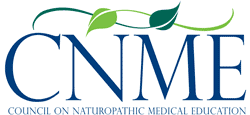When you think of naturopathic medicine, what first comes to mind? There are many stereotypes out there about naturopathic doctors and even more people who have never heard that this type of healthcare provider exists. With the ongoing shortage of primary care physicians and the number of people seeking alternatives to the current healthcare system, it’s time to shed some light on this profession.
Naturopathic medicine is a unique primary care system that combines modern science with traditional healing methods. Naturopathic physicians utilize treatments that minimize the risk of harm while maximizing health benefits.
Naturopathic physicians are an extremely heterogeneous group, however the one thing that unites us all is our common philosophy:
The Healing Power of Nature
Homeostasis is the state of beingthat all life attempts to achieve. Naturopathic medicine recognizes an innate ability for the human body to repair itself. We work with our patients to identify and remove obstacles to this self-healing process.
Identify and Treat the Cause
Naturopathic doctors endeavor to treat the cause of disease rather than simply suppressing symptoms. Yes, we order more tests than an average family medicine doctor, but our patients often come to us with highly complex medical histories when nothing else has worked for them. We are detectives and problem solvers with the aspiration to optimize lasting wellness.
First Do No Harm
Naturopathic physicians take an oath to serve others and, to the best of our abilities, to refrain from doing harm. In practice this means utilizing the least invasive diagnostic techniques possible and choosing treatments that have the fewest adverse effects, while still doing our due diligence to effectively address our patients’ health concerns.
Doctor as Teacher
We take the idea of Doctor as teacher pretty seriously. Whether we’re discussing nutrition, stress management, or epigenetics, a huge part of what we do with patients is education.
Treat the Whole Person
Humans are complicated beings and our health is a tangled web of our genetics and our experiences. Naturopathic physicians are adept at individualizing treatments to address the physical, mental, and emotional aspects of illness.
Prevention
Last, but certainly not least, naturopathic doctors practice preventive medicine. We stress diet and lifestyle changes as the foundation of good health. We have an eye not only for diagnosing a patient’s current health concern, but also advising them on conditions that they are at risk for developing.
Sometimes people mistakenly believe that the study of naturopathic medicine can be accomplished in a short online correspondence course, but there are important distinctions between traditional naturopaths and licensed naturopathic doctors. Naturopathic doctors attend medical colleges that are accredited by one of the regional accrediting agencies approved by the U.S. Department of Education as well as the Council on Naturopathic Medical Education (CNME). These are competitive four-year programs that consist of extensive classroom hours in biochemistry, anatomy and physiology, pathology, medical diagnosis, and pharmacology, as well as nutrition, botanical medicine, homeopathy, physical medicine, and IV therapy. There are clinical rotations in primary care as well as more focused internships in women’s health, integrative oncology, pediatric medicine, and cardiology. To become licensed all naturopathic doctors must pass both the basic science and clinical science portions of the Naturopathic Physicians Licensing Examinations (NPLEX) as well as satisfying all requirements of the state or province in which they plan to practice. Many naturopathic doctors also go on to participate in competitive clinical residency programs.
Another common misconception is that natural treatments are not evidence-based. Unfortunately there is a severe lack of funding for research in complementary and alternative medicine, which does limit the amount of high quality studies available. Even still, a quick search of PubMed will reveal that many common naturopathic treatments are in fact evidence-based. From hawthorn for heart failure (1), SAMe for depression (2), probiotics for Irritable Bowel Syndrome (3), and selenium for Hashimoto’s thyroiditis (4), research supports the use of herbal and nutrient therapies for a variety of acute and chronic diseases.
Health care is a team sport and all medical professionals have important roles to play. Through open dialogue and coordinated patient care we can improve health outcomes. Integrative medicine not only benefits our patients but us as providers as well; by drawing on our individual strengths we can learn a lot from each other.
About the author: Dr. Cori Burke is a licensed Naturopathic Physician in Hillsboro, Oregon. She earned her Doctorate in Naturopathic Medicine from the National College of Natural Medicine and has advanced training in homeopathy and botanical medicine. During her schooling she participated in a prestigious one-year internship in gynecology and primary care as well as a six-month internship in integrative cardiology and pulmonary medicine. Her areas of expertise are integrative pediatrics, women’s health, and endocrine disorders. More of her writings on naturopathic medicine and healthy living can be found on her blog at www.willownaturalhealth.com.
Resources:
- BoardVitals NPLEX 1 FREE Sample Questions
- BoardVitals NPLEX Part 1 Question Bank
- American Association of Naturopathic Physicians
- Association of Accredited Naturopathic Medical Colleges





